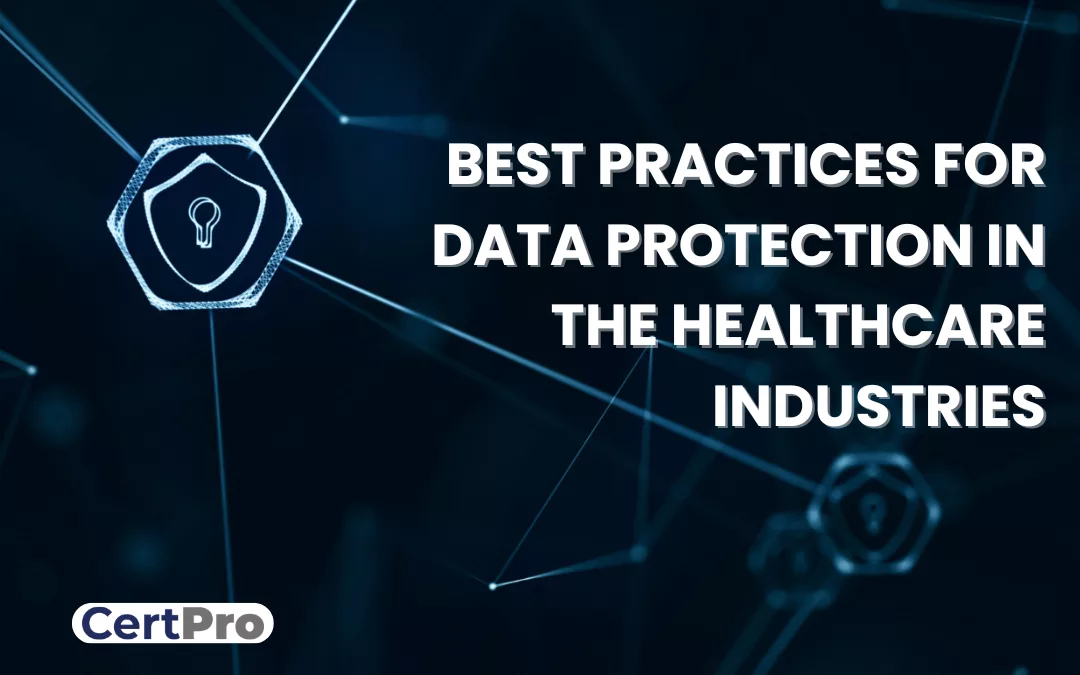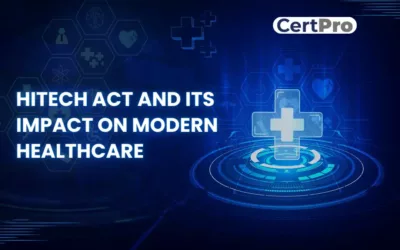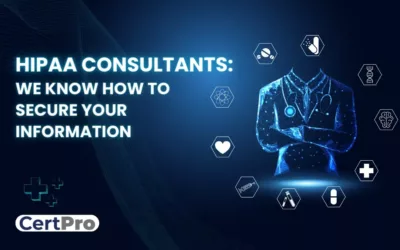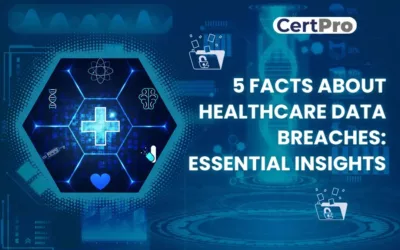In the healthcare sector, safeguarding sensitive information about patients is extremely important. Patient data includes personal details, medical histories, and treatment plans. Therefore, it must be protected and should be confidential. Thus, breaches not only disrupt operations but also harm patient trust. Patients entrust data protection in healthcare providers and share their most personal and intimate details with them. So, the service provider is responsible for ensuring data confidentiality and privacy. If this trust is violated due to inadequate data protection measures, it can have many consequences for patients and healthcare organizations. That’s why the industry needs strong security measures to ensure the safety and confidentiality of patient information. Therefore, healthcare data protection initiatives allow providers to keep patients’ trust and information private.
Healthcare providers should follow the strict regulations made by HIPAA and the EU’s GDPR. Hence, patient information, known as protected health information (PHI), is compassionate. The PHI data is precious, so hackers try to hack that data. Consequently, PHI data always needs to be well protected. If healthcare providers do not efficiently follow these data protection measures, it can lead to hefty fines. It also damages the organization’s reputation. This article will explore best practices for data protection in the healthcare sector and discuss the risk factors associated with data protection in healthcare.
HIPAA PRIVACY AND SECURITY RULES FOR THE HEALTHCARE INDUSTRIES
HIPAA includes the Privacy Rule and the Security Rule. Both are designed to protect patients’ information. The Privacy Rule ensures confidentiality, while the Security Rule ensures safeguards for PHI.
HIPAA Privacy Rule: Privacy rules protect the medical records of your healthcare organization. Therefore, privacy rules are applied to various entities in healthcare facilities. They help streamline the process of your healthcare facilities that are relevant to transmitting information through electronic mediums. Therefore, privacy rules are mandated for the implementation of policies and procedures. Furthermore, they help restrict the use and disclosure of protected health information (PHI) unless it is permitted or mandated by the regulation.
Additionally, patients have specific rights regarding their PHI. They can amend, access, and request the permitted disclosure of their information. Therefore, implementing privacy rules ensures data protection in your healthcare facilities and empowers patients to access their data.
HIPAA Security Rule: It mainly protects your healthcare facilities’ electronically protected health information (e-PHI). Thus, the rules help establish data protection measures. The process confirms the data security and confidentiality of e-PHI. Furthermore, the process guarantees physical, technical, and administrative data protection. It diminishes the risk of data violations in your facilities.
Similarly, administrative measures help enforce policies and procedures. It prevents unauthorized access to patient data and secures the e-PHI. On the other hand, physical and technical measures ensure proper technological and mechanical control over the data. In addition, it prevents unauthorized access to e-PHI. Thus, by enforcing these comprehensive safeguards, entities can prevent risks and uphold confidentiality.
8 BEST PRACTICES FOR SECURING HEALTHCARE DATA
Here are the best eight practices for securing private health data:
1. Encryption: Encryption is a fundamental rule for healthcare providers under HIPAA. It means encoding patient data into a secret code when saved or sent. This creates a barrier that prevents unauthorized access to patient information. This additional layer of security ensures the protection of patient’s private data. It keeps patients’ private information safe from unauthorized access, safeguarding patient privacy in compliance with regulatory standards.
2. Secure Devices: Encrypting all patient data devices, including laptops, tablets, and smartphones, is essential to protecting privacy. There are strict policies against saving patient details on personal devices. Therefore, executing these measures ensures that sensitive data remains secure. Furthermore, the whole process can prevent unauthorized access to data.
3. Access Controls: It’s vital to restrict access to patient data, allowing only authorized staff to view it. This means having strong passwords and extra checks, like multi-factor authentication. Also, only give access to those who need it for their job. By implementing these measures, healthcare facilities ensure that only those with valid reasons can access patient information. Thus, following regulatory standards enhances security and protects patient privacy.
4. Risk Assessments: Consistently assessing risks is crucial for safeguarding patient information security. Thus, it thoroughly examines the healthcare landscape, encompassing technology, procedures, and human aspects. Healthcare professionals can detect and rectify vulnerabilities promptly. This proactive approach enables organizations to implement adequate security measures. Consequently, it prevents risks and safeguards patient data against potential breaches or unauthorized access. So, these assessments contribute to maintaining compliance with regulatory standards and ensuring the confidentiality and integrity of patient information.
5. Employee Training: It’s essential to train employees about data security. This training should include how to identify and avoid phishing attacks and explain why keeping patient data safe is vital. This will encourage employees to play an active role in safeguarding sensitive data. This training ensures employees have the right knowledge and skills to keep patient data safe. It helps reduce the risk of security breaches and enhances overall data security measures.
6. Strong Password: It’s important to set up strong, unique passwords for all healthcare accounts. Always avoid using the same password for different accounts. Using complex passwords adds an extra layer of security. It ensures that healthcare-related accounts remain protected from unauthorized access. This simple practice helps maintain the confidentiality and integrity of healthcare data, reduce the risk of security breaches, and ensure compliance with data protection standards.
7. HIPAA Compliance: Healthcare groups must know and stick to the HIPAA Security Upholds Rule. It sets rules for safeguarding electronic protected health information (ePHI). Following these standards ensures that patient data remains secure and confidential. Organizations can prioritize protecting sensitive information by implementing the HIPAA Security Rule. It will reduce the risk of data breaches and ensure compliance with regulatory requirements. So, it also upholds patient privacy and security standards.
8. Offsite Backup: Cyberattacks are a serious threat to patient privacy. It can reveal sensitive medical data and disrupt data reliability or access, as seen with ransomware attacks. Even natural disasters affecting healthcare data centers can lead to severe consequences. If the data isn’t backed up correctly, it can also have several implications. That’s why it’s crucial to regularly back up data offsite, implementing strong measures like encryption and access control to secure backups. Offsite backups are vital for effective disaster recovery. It ensures data remains safe and accessible.
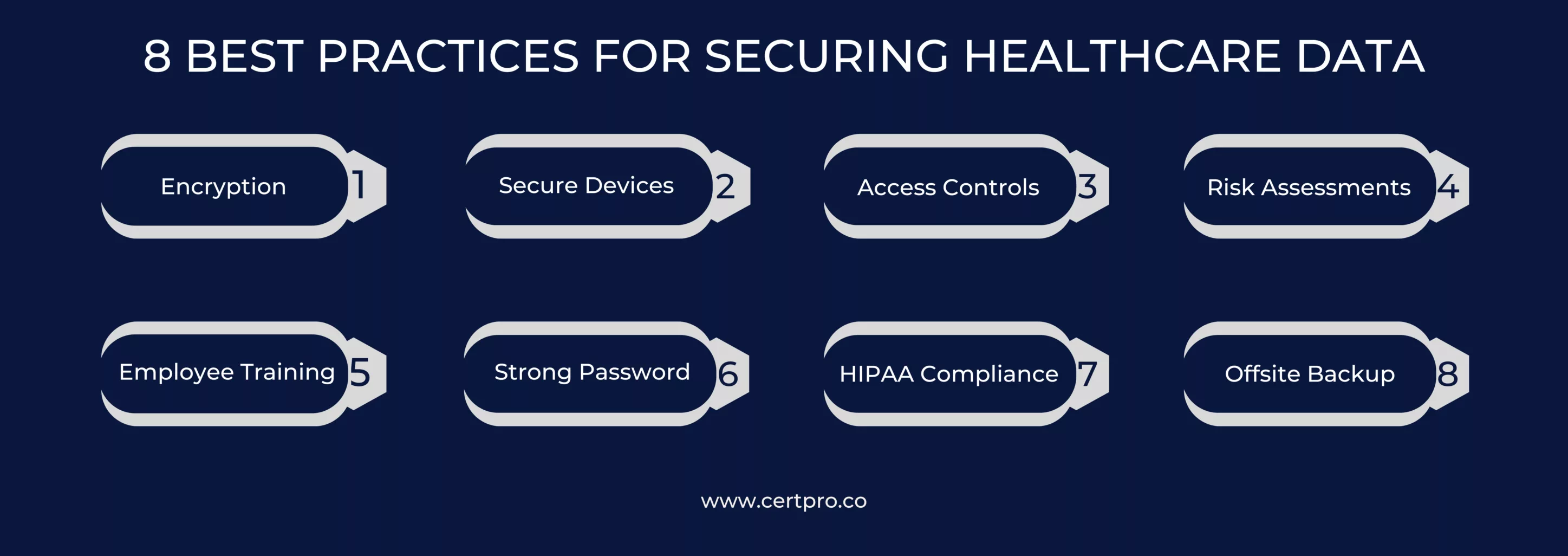
Risk Factors Associated with Healthcare Facilities
Healthcare information is precious to the healthcare industry. Therefore, securing healthcare information is the utmost priority for healthcare organizations. However, healthcare organizations might face the risk of data breaches due to some circumstances. Below, we will discuss them and explain the process of securing data.
Use of Outdated Infrastructure: Organizations following outdated applications and procedures often face security issues. Therefore, upgrading new technologies and operation processes improves data security in healthcare facilities.
Email Scams with Malware: Email scams are the most significant threat to data breaches in healthcare industries. In this regard, healthcare professionals receive emails similar to those of authorized users. Nevertheless, these emails contain malicious links that risk your data. Furthermore, employees often click the link under work pressure and because of a lack of knowledge. Therefore, their one-click causes data breaches in the organization.
Data Breaches Through Employees: In healthcare facilities, the risk of data breaches is higher because the number of employees is high compared to other industries. Therefore, more employees will increase the unauthorized access to data.
Unsecured Wireless Network Security: In many healthcare facilities, wireless networks allow employees to access patient data. Therefore, a lack of proper authentication of access to the data can violate data security and interfere with it.
A Lack of Training: Healthcare organizations should educate employees about data security. The training can help them recognize cyber threats and procedures for risk mitigation shortly.
Failure in Access Control: Healthcare organizations need proper controls over data unauthorized access. Therefore, robust policies and procedures regarding employee behavior and actions are necessary. Adequate monitoring of employees’ attentiveness toward data security ensures data safety.
Contact CertPro Today
Our consulting and auditing services can help your business. We understand the importance of data security in healthcare facilities. Our experts can guide and assist you in securing your client’s data. Thus, it avoids the risk of data violations. In addition, we help optimize customer experiences and manage complex data systems. We will implement the foremost data security controls to strengthen data security. Hence, our support and guidance enhance operational processes and business scalability. For more details, visit our site CertPro and connect with us.
FAQ
WHAT IS PROTECTED HEALTH INFORMATION?
Protected health information, or PHI, is considered individual health information held or transmitted by the authorized entity regardless of the form.
How can healthcare organizations monitor data usage?
Healthcare organizations can monitor data usage by
- implementing robust data monitoring systems
- tracking access to patient records.
- implementing logging and monitoring systems
- preventing unauthorized access
What are the patient's rights regarding their personal health information?
Patients can access, review, and correct their health data. They can also opt out of sharing their data for insurance or marketing purposes and restrict their data.
How can people protect their healthcare data?
Here are some points to avoid the risk:
- Carefully handle emails or calls asking for health information.
- Verify identities to prevent scams.
- Review health records regularly for accuracy.
- Limit online sharing
Is the GDPR applicable to protect healthcare data?
Yes, GDPR applies to healthcare data. The GDPR categorizes health data as sensitive personal data. It mandates that health data should only be processed for health-related purposes and with the data subject’s consent.

About the Author
GANESH S
Ganesh S, an expert in writing content on compliance, auditing, and cybersecurity, holds a Bachelor of Arts (BA) in Journalism and Mass Communication. With a keen eye for detail and a knack for clear communication, Ganesh excels in producing informative and engaging content in the fields of compliance, auditing, and cybersecurity, with particular expertise in ISO 27001, GDPR, SOC 2, HIPAA, and CE Mark.
HITECH ACT AND ITS IMPACT ON MODERN HEALTHCARE
In 2009, the Health Information Technology for Economic and Clinical Health or HITECH Act was signed to transform the American healthcare industry. The laws worked as a forward-thinking process of changing patient services. In this regard, the Patient Protection and...
HIPAA CONSULTANTS: WE KNOW HOW TO SECURE YOUR INFORMATION
Navigating HIPAA compliance can be complex; therefore, organizations seek advice from HIPAA consultants. These HIPAA experts have specific knowledge. They can help firms to understand the problematic standards of the Healthcare Privacy Act. In 1996, HIPAA was created....
5 FACTS ABOUT HEALTHCARE DATA BREACHES: ESSENTIAL INSIGHTS
The healthcare industry has experienced tremendous change in the current era of digital connectivity. Cyberthreats increasingly target the healthcare sector due to the wide range of sensitive data that is maintained online, including insurance details and medical...

